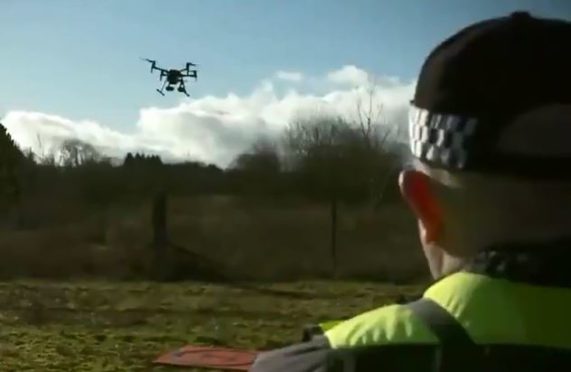Drones could be used to save lives – whether in emergencies off the rugged rocks of the Atlantic coast or casualties in the high waves of the North Sea.
The UK coastguard will investigate if drones could also boost missions by visiting rescue sites ahead of air, sea or land based recovery teams.
They could potentially provide a full picture of the situation and help to develop the appropriate response.
A project announced today by the MCA will explore how current regulation can be developed to unlock the potential for drones to help those in distress on the UK’s coastline, making rescues safer and more efficient.
The technology could also boost capabilities for marine protection and counter pollution operations.
Maritime Minister Nusrat Ghani said: “Drone technology has enormous potential for our search and rescue teams, who save lives 24 hours a day, seven days a week.
“This ground-breaking project will not only hope to boost the capabilities of our already fantastic teams but will also boost our ability to spot pollution hazards and protect our precious marine environment.”
Last year alone, the MCA’s civilian search and rescue helicopters responded to seven missions a day on average, saving more than 1,600 people. In total, the MCA coordinated more than 22,000 incidents and rescued in excess of 7,000 people.
Phil Hanson, aviation technical assurance manager at the MCA, said: “I am extremely proud and excited that the MCA has taken the brave step to take the lead in the development and implementation of Beyond Visual Line of Sight (BVLOS) drones in UK airspace.
“The use of drones in search and rescue, counter pollution and maritime aerial observation operations will potentially increase overall efficiency and also reduce the risk to our personnel – allowing the MCA to discharge its international obligations effectively.”
The MCA will work with Elbit Systems UK and the Civil Aviation Authority (CAA) to carry out the demonstrations in the coming months.
Martin Fausset, chief executive of Elbit Systems UK, said: “We are proud to partner with the MCA on this valuable demonstration of the wide range of unmanned capabilities Elbit Systems UK can offer.
“We look forward to providing the best possible support for the lifesaving work of the MCA. This is the latest example of how Elbit Systems UK is delivering proven technologies to support operational needs of UK customers.”
In November it became mandatory for operators of small unmanned aircraft to register themselves and take an online competency test, with 80,000 having registered so far.
